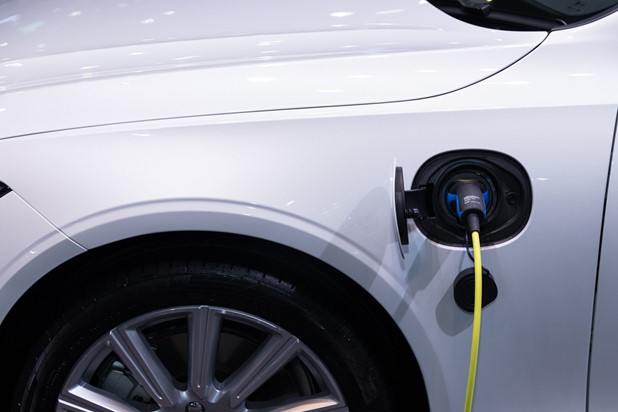Saving... Please wait..!
Canadian Lithium Mining | National Energy Transition | Global Energy Show
Canadian Lithium Mining: How Canada Can Become an Electric Vehicle Powerhouse

This year, the federal government announced their ban on the sale of non-zero emission vehicles by the year 2035. Enterprising Canadians realize that this news means lithium demand will be rising in the years to come, due to its use in electric vehicles’ lithium-ion batteries.
There have been some exciting developments in our national mining strategy that could make Canada one of the predominant global lithium markets.
Clinton Desveaux, a freelance writer and businessman who specializes in disruption and innovation issues, sat down with Rachel Gregory, Digital Host at The Global Energy, to discuss the opportunities this presents to Canada.
Interview with Clinton Desveaux, Accredited Writer
What Trudeau and Biden’s New National Mining Strategy Means for Our Economy?
Rachel: What do you think is going to happen now that this strategy is in place and both sides agree?
Clinton: Provinces like Alberta, Saskatchewan, Manitoba, Quebec, Ontario, Newfoundland and all the territories have all of those precious metals that are needed in what I like to call the recipe of electric car batteries. Canada is directly beside the world's largest potential electric vehicle market: the United States.
Over the last couple of months, countries in Europe like Norway, Iceland, Sweden, and the Netherlands have seen electric vehicle adoption rates as high as 87%, in some cases. And we know that the transition is starting to develop here in North America.
This is a real opportunity for Canada to become an economic powerhouse, so it's really time for the Canadian Government to sit down and discuss the development of lithium projects with the provinces.
Electric Vehicles Versus Traditional Gasoline Vehicles
Clinton: There's been so much innovation and disruption when it comes to electric vehicles, specifically in the last 12 months. Two years ago, an electric car battery took an hour to charge. So it's gone from an hour to 15 minutes. That battery can last 3.5 million kilometres, which is 2 million miles.
All of this development and innovation has happened so quickly and the cost of lithium-ion batteries has fallen dramatically. Now it's under a hundred dollars per kilowatt hour. So that's really important as well because that means that the technology is not only catching up to traditional gasoline and diesel passenger vehicles. It's actually exceeding it now.
The Sustainability of Lithium Mining Operations
Rachel: If we can't build pipelines across our country due to environmentalist concerns, why do you think they would feel different about mining lithium and transporting it across Canada?
Clinton: There's a technology that's actually been developed by a Canadian company based in Alberta that’s able to speed up the process of lithium extraction from months into literally hours. That gives Canada that competitive edge on the global market because, in many cases, they're using solar panels to generate heat. If we look at, say, the Alberta oil sands operations, there are significant lithium brine deposits available. Up until recently, that lithium has mostly been discarded. In some places, like the tailing ponds, they have found significant quantities of lithium that they can extract from those ponds. They can take that resource and leave the water clean.
How the Government Can Make the Most of this Opportunity
Rachel: Looking at this opportunity, we obviously need a green plan in place. Where do you see this going now that its kind of in motion?
Clinton: The next step for the Canadian government is to work with the provinces and perhaps revisit bill C-69 and bill C-48 because they can be problematic when it comes to mining projects.
One of the concerns that I have is interruptions in the supply chain. Do we want private industry and our various provincial and federal governments working on the national mining strategy, setting up deals with the various battery manufacturers and the various electric vehicle manufacturers, only to have that supply chain get interrupted in our courts and our railways?
If the regulatory framework is preventing us from being competitive in the lithium space and is slowing down the ability to really come out on top, then we need to revisit that and find a way to make it quicker and more competitive. That will benefit all of us as a nation.
What Happens if Governments Don’t Act Now
Rachel: General Motors has said that they expect a significant amount of their vehicles in the next few years or decades to be moved over to electric vehicles. If we miss the boat on this, where do we end up?
Clinton: Auto and battery manufacturers have actually publicly pleaded with Canada and the United States to basically get their act together. Either country in South America like Argentina, Bolivia, and Chile are going to put their lithium projects toward making these products and they're going to sell them to us and they're going to reap the economic benefits of those transactions or we can use our natural mineral resources and do that ourselves.
Continue Learning About the Potential of Canadian Lithium Mining
With a goal of net-zero emissions by 2050, the federal government has put pressure on Canadian companies to adapt. Clinton Desveaux suggests turning Canada into an economic powerhouse by taking advantage of our available battery minerals assets, instead of paying other countries for theirs.
If you want to learn more about pertinent topics in Canada’s energy sector such as Canadian lithium mining and the effect it can have on our economy, register for the next Global Energy Show.
Canadian Lithium Mining | National Energy Transition | Global Energy Show
Beware of email scams
DMG Events has been informed from several exhibitors are receiving scam emails . Please be aware these offers are fraudulent. These scammers do not have any relationship with DMG Events.In accordance with GDPR, CASL and other jurisdictional data privacy regulations, DMG Events will never sell your data to any third party organisations. Please see our Privacy Policy for more information regarding how DMG Events will process and store your information.





